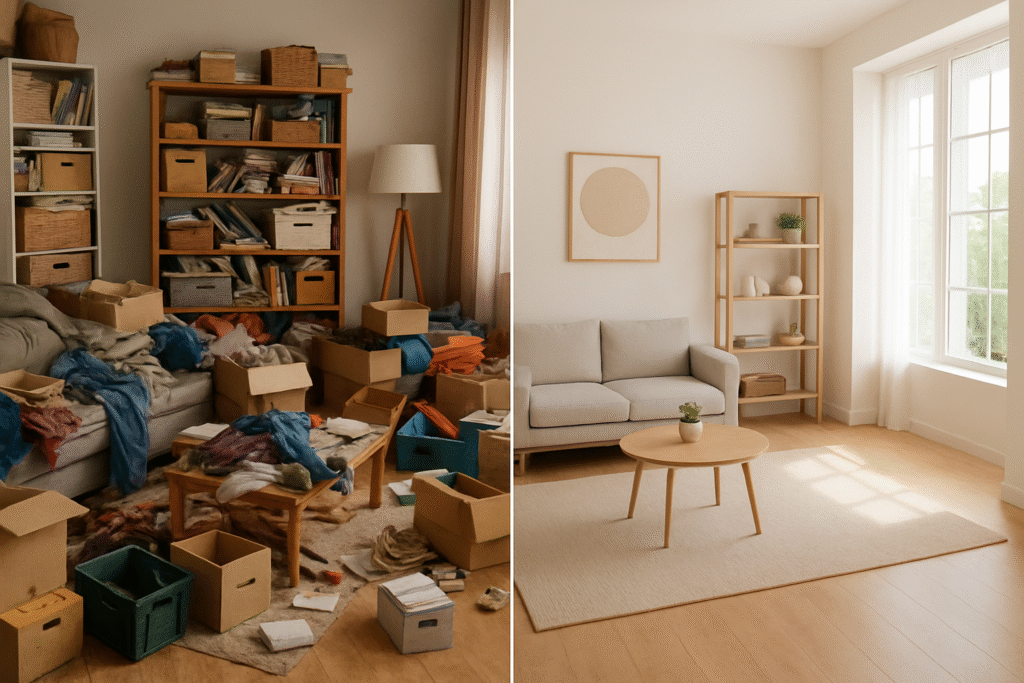What Clutter Really Does to Your Mind
Clutter in our homes isn’t just an eyesore—it triggers a chain reaction in the brain that can disrupt focus, increase stress, and deplete your energy. Research in neuroscience shows that our brains naturally crave order. When we’re surrounded by disorganization, our cognitive resources are constantly split. Every visible object competes for attention, overloading our visual cortex much like having too many browser tabs open at once.
This constant sensory overload can:
-
Reduce Focus and Memory: Clutter fragments your attention, making it tough to concentrate or remember important tasks because your brain is busy filtering out distractions.
-
Increase Stress and Cortisol: Multiple studies show that living in cluttered environments raises cortisol, the stress hormone, leading to chronic tension, anxiety, and even sleep problems.
-
Lower Wellbeing: Unresolved clutter triggers feelings of overwhelm, frustration, and even shame, creating a feedback loop that makes it harder to get started.
The Science Behind the Mess
In studies using fMRI brain scans, neuroscientists have found that organized environments literally free up space in your brain’s working memory, making it easier to process information and complete tasks efficiently. On the flip side, a cluttered home means your brain must filter out constant “visual noise,” resulting in mental fatigue and reduced cognitive performance.
Even emotionally, clutter signals your brain that things are unresolved, keeping you in a subtle state of fight-or-flight. This can lead not only to stress but also affect your relationships, sleep quality, and overall sense of control.
How to Make It Better: Simple Decluttering Strategies
Escaping the clutter trap isn’t about aiming for perfection. Neuroscience suggests a few key approaches to reset your space—and your mind:
-
Start Small: Pick one area (like a desk or closet). Remove 3–5 items you don’t use, or don’t love. Small wins reduce overwhelm and boost motivation.
-
Create Visual Calm: Keep only a few meaningful items in view. Grouping and organizing objects lowers cognitive load, making the room feel calmer.
-
Schedule Decluttering Sprints: Set a timer for 15 minutes. Rapid, focused decluttering avoids decision fatigue and builds momentum.
-
Make it a Habit: Regular, simple organizing keeps clutter (and stress) from piling up again. A tidy environment helps your brain focus and relax.
-
Celebrate Progress: Notice how a clear space boosts your mood, energy, and clarity. That positive feedback reinforces your new habits.
In a Nutshell
Clutter isn’t just “stuff”—it’s a direct line to your brain’s stress and processing centers. By understanding the neuroscience of clutter, you can transform your home from a mental minefield to a sanctuary for focus, well-being, and peace of mind. Small steps add up, helping you create a home (and a headspace) that supports the truest version of you.
Ready to take the first step? Start with just one drawer or shelf—your brain will thank you!

